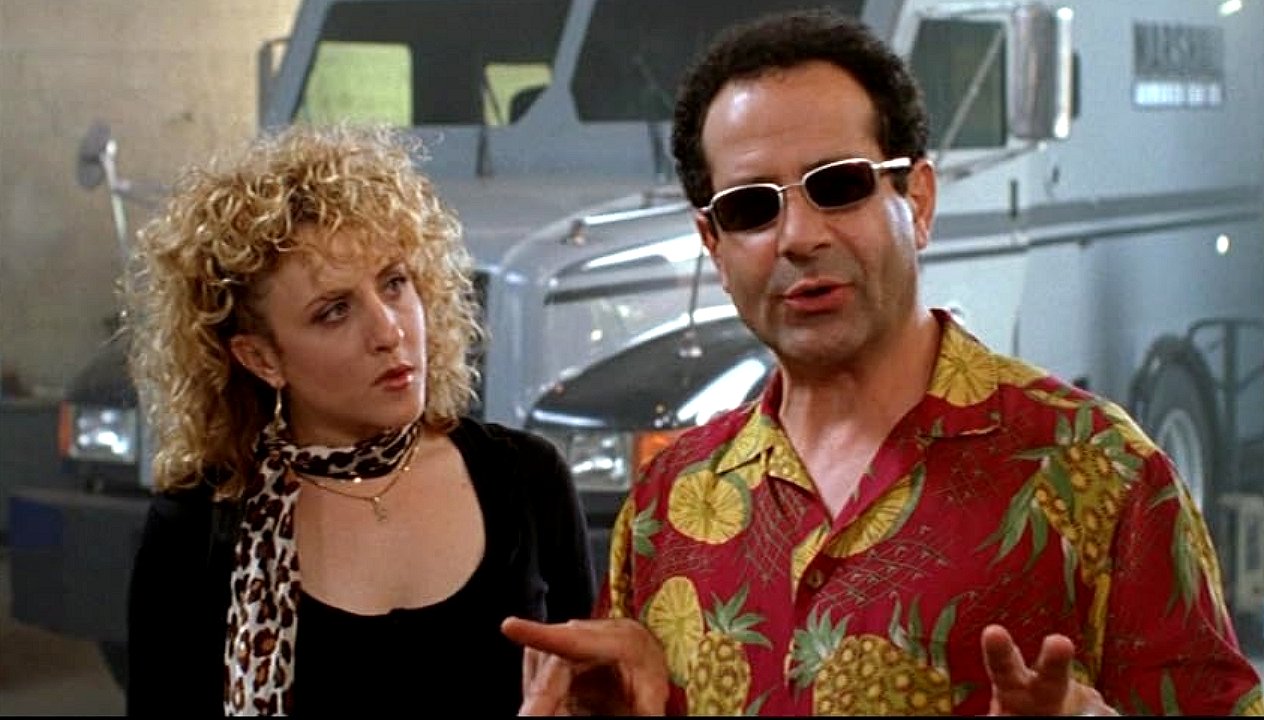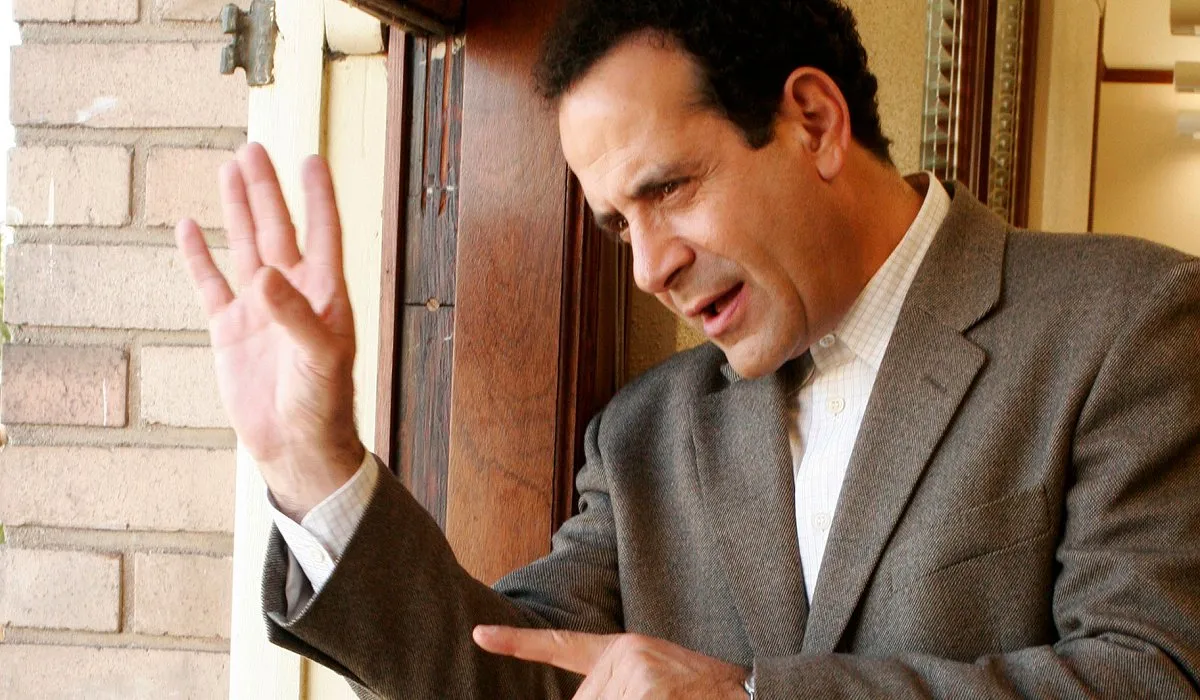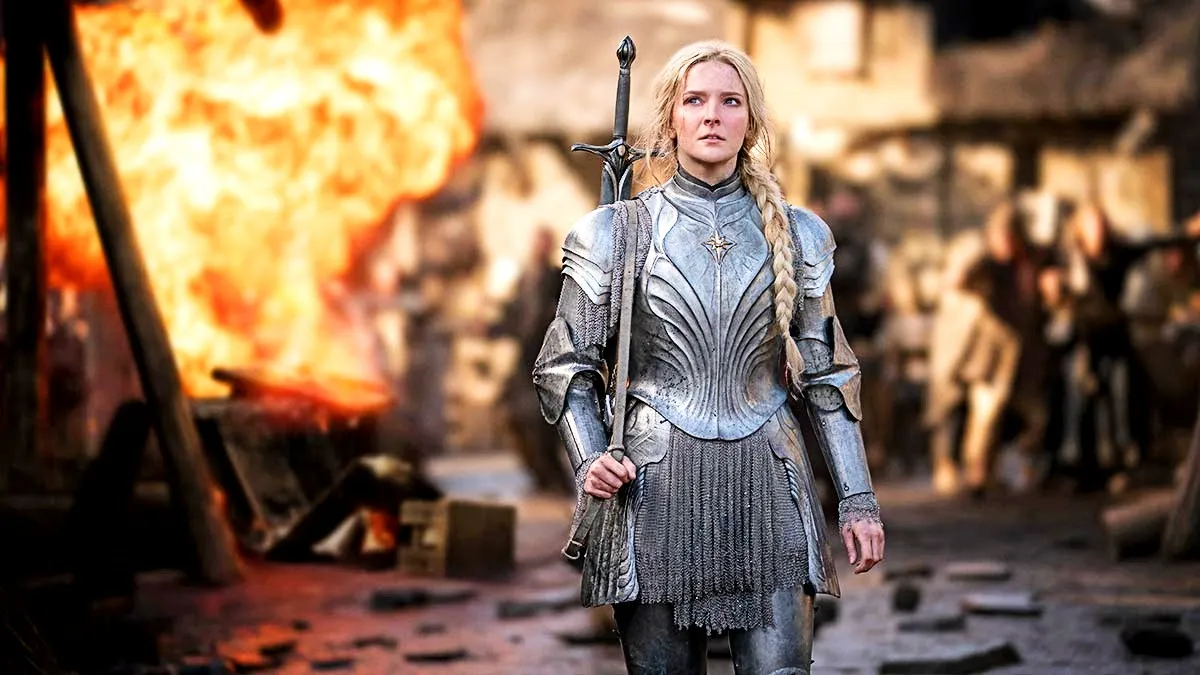It’s Obsessive-Compulsive Disorder (OCD) Awareness Week so really, there couldn’t have been a better time to announce the release date and promotional images for the upcoming Mr. Monk’s Last Case: A Monk Movie. After all, Monk is probably one of the most famous characters with OCD in television history.
Monk (2002-2009) revolves around the struggles of former police detective Adrian Monk (Tony Shalhoub), whose mental health took a drastic downturn after the murder of his wife. He has a severe obsessive-compulsive disorder that revolves around cleanliness, neatness, germs, and a few unusual phobias such as a fear of milk. But it’s his intense attention to detail that helps him solve cases that no other detective could solve. Eventually, at the end of the series, he is finally able to uncover the mystery of his wife’s death and even connect with an unknown daughter she left behind.
Monk was a well-written show in many ways, and certainly a well-acted one. I always enjoy watching it, but I can never shake the feeling that it’s not really that great a portrayal of OCD.
It’s a little ironic that I should use the phrase “never shake the feeling” there because OCD is all about never being able to shake a feeling. You get a bad thought in your head, and you either have to do a ritual to disperse the anxiety it awakens in you, or just sit with the anxiety. Option number two is one way to set yourself on the path to recovery, but it’s hard as hell.
Monk’s OCD
One of the primary things that bothers me about Monk is that no one in his life seems to actually be helping him heal. He’s seen attending sessions with his therapist, played by Stanley Kamel, who was a regular on the series until his death in 2008. But you need much more than therapy to “beat” OCD. Monk would go straight from therapy to situations where his assistants would automatically hand him wet wipes so he never has to feel discomforted by germs. Something like this only works in the short term, and in the long term, it just causes more damage.
I hated to admit this to myself for a long time but exposure therapy—those mentioned above where you “just sit with the anxiety”—really is the gold standard of OCD treatment. A good therapist would help Monk with Exposure and Response Prevention (ERP) which is all about slowly working your way up to facing your fears. So instead of Monk getting a wet wipe every time he fears he’s been exposed to germs, he would be encouraged to ride the anxiety out for maybe five minutes before being handed his wipe. Then the next session extends that to ten minutes, and so on.
ERP was already in use before Monk came out but it’s never mentioned in the show. And in some ways that’s totally fine! Monk never pretended to be realistic. Detective procedurals, where each new episode requires a convoluted murder or crime plot, usually aren’t. But whenever I watch Monk, I do get feelings of, “Monk’s assistants are making life so much worse for him, my god.” And as someone who’s been through all that, it’s hard not to let it taint my perception of the characters a little.
Monk and Medication

One particular episode of Monk garnered a bit of controversy. This was the season three episode, “Mr. Monk Takes His Medicine” where, as you can probably guess from the title, Monk starts taking medication for his OCD. But, because this is a show where the status quo is god, the medication changes his personality so much that he has to stop taking it and revert to his old self.
Obviously, medications can affect people badly in real life! But nothing like what I saw in this episode. It’s very poorly thought out, if not outright dangerous.
Psychology Today magazine has an article from ten years ago about Monk and that episode in particular, and it still holds up. Author Fletcher Wortmann wrote that the episode, “adopts a veneer of respectability that makes its fantastic suggestions (drugs are magic, and medicine is a vice) especially irresponsible and dangerous,” and called it, “probably the worst portrayal of mental disability and psychiatric treatment I’ve ever seen, in any form of media.” I found it hard to disagree with him when he said this:
“The message seems clear. Even with a diagnosed mental illness, taking prescription medication is the same as popping pills or binge-drinking: it might make you feel a little better but you’ll embarrass yourself, you’ll disappoint your friends, you’ll lose what makes you unique and valuable as a person. Your only choice is to endure your symptoms because they are inextricably intertwined with your gifts—you should be grateful for them.“
As someone who takes so many pills that I rattle, I feel much the same way about that particular episode. I would not recommend it to another OCD sufferer, put it that way.
Those three little letters
Another thing that always frustrated me about the show was that “OCD” or “obsessive-compulsive disorder” is barely labeled in the show at all, despite being used extensively in the marketing. (There was, according to The Hollywood Reporter, once a “Monk-branded ‘OCD Kit’” which included “a shoe buffer, a shoe wipe, a lint brush, hand sanitizer, hand wipes and stain removers.” Yikes. ) Someone describing Monk as having “classic obsessive-compulsive tendencies” is about as close as we get.
And the series never offers a good reason for this refusal to use the term OCD. I totally get why Monk the character would hide the name of his mental illness or refuse to name it even to himself. But it reads almost like the writers didn’t want to alienate potential audience members by making them think too much about what exact disorder Monk has. It does somewhat drag the show down in my opinion.
Are we supposed to laugh at Monk?
And finally, I’ve never really been able to work out whether the show’s creators want us to be laughing at Monk’s difficulties or not. The show was, after all, a drama-comedy series. This issue is another one Fletcher Wortmann wrote about in his Psychology Today article, saying,
“I have no problem with jokes about OCD, but I do have a problem with entertainment that permits audiences to laugh at the disorder without showing them the terror and despair and shame and self-loathing that many OCD sufferers endure.”
And that’s fair. On the other hand, Monk co-creator David Hoberman has OCD himself and in a 2003 interview with the Los Angeles Times, he said that the intent of the show was to “laugh with [Monk],” which is of course very different from laughing at. All the same, I really don’t think the long drawn-out jokes where the punchline is “Monk can’t do something” are particularly funny, because I know full well that what we’re actually watching is a depiction of a human being in tremendous torment.
Maybe Tony Shalhoub himself summed everything up the best. He said in an interview with Chron when the show was in its infancy, “I have to be careful not to go way over the top in every role I do. But there are those rare times when doing Monk when I’m actually given license to go over the top. And most of the time it works.”
Most of the time. Usually, Monk was fine and portrayed its lead character sympathetically. But the rest of the time, it could descend into awful stereotypes and problematic messages. I’m crossing my fingers hard that Mr. Monk’s Last Case and any potential show revival that comes after (because that is a possibility!) will avoid these. And please, for the love of god, somebody actually say “OCD” already! I’ve been saying it for almost half my life.
(featured image: Touchstone Television)










Published: Oct 12, 2023 03:36 pm